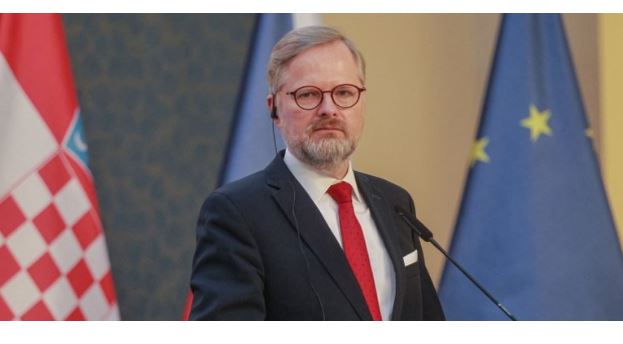The genocide in Srebrenica is one of the biggest war crimes in Europe since World War II, the Czech prime minister said on Saturday. “In July 1995, during the war in Bosnia and Herzegovina, there was a mass murder of captured civilians-genocide in Srebrenica. This event is considered one of the biggest war crimes in Europe since World War II. But it turns out that even today Europe is not safe,” Petr Fiala said on Twitter.
He pointed out that Europe is now facing a similar scenario led by Russian President Vladimir Putin in Ukraine.
“We are again witnessing terrible violence and massacre of civilians, this time by Putin’s Russia, which aggressively attacked Ukraine. Strengthening European security is one of the primary tasks of the Czech presidency of the European Union, and that should be the goal of all of us,” said the premier.
Every year on July 11, newly identified victims of the Srebrenica genocide are buried in a memorial cemetery in Potocari, a Srebrenica village in eastern Bosnia-Herzegovina.
Bosnia-Herzegovina is set to bid farewell to 50 more identified victims on Monday at the 27th anniversary of the genocide.
After Monday’s burials in Potocari, the number of genocide victims laid to rest in the memorial cemetery will rise to 6,721.
SREBRENICA GENOCIDE
More than 8,000 Bosnian Muslim men and boys were killed when Bosnian Serb forces attacked Srebrenica in July 1995, despite the presence of Dutch peacekeeping troops.
The Serb forces were trying to wrest territory from Bosnian Muslims and Croats to form a state.
The UN Security Council had declared Srebrenica a “safe area” in the spring of 1993. However, troops led by Gen. Ratko Mladic, who was later found guilty of war crimes, crimes against humanity and genocide, overran the UN zone.
Dutch troops failed to act as Serb forces occupied the area, killing some 2,000 men and boys on July 11 alone.
About 15,000 residents of Srebrenica fled to the surrounding mountains, but Serb troops hunted down and killed 6,000 more people.
Bodies of victims have been found in 570 different places in the country.
In 2007, the International Court of Justice in The Hague ruled that genocide had been committed in Srebrenica.
On June 8, 2021, UN tribunal judges upheld in a second-instance trial a verdict sentencing Mladic to life in prison for the genocide, persecution, crimes against humanity, extermination, and other war crimes in Bosnia-Herzegovina.

















